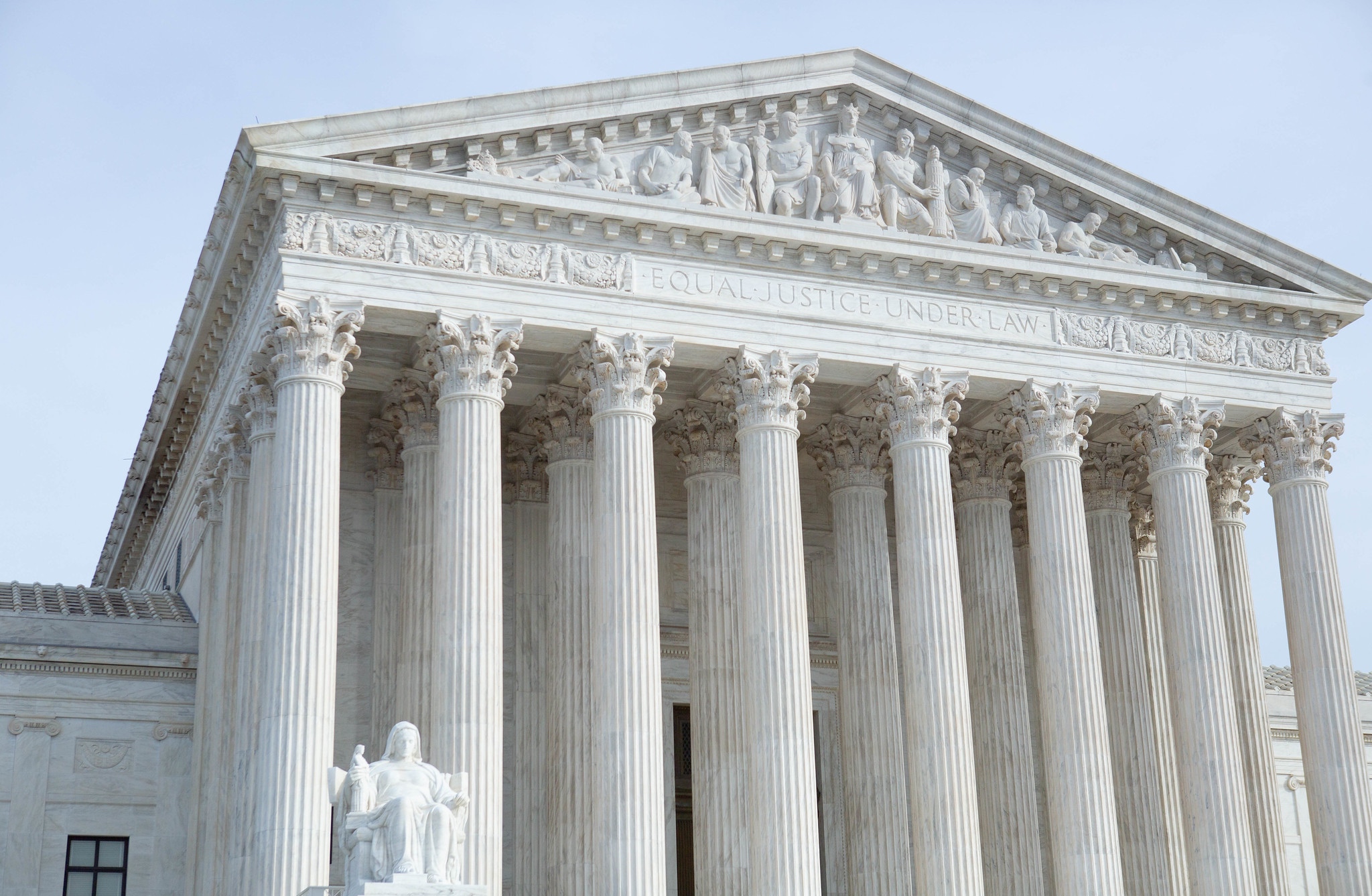Court likely to reject Trump too small trademark claim


Wednesdays argument in Vidal v. Elster involved a provision in the federal Lanham Act that directs the Patent and Trademark Office, the entity that registers federal trademarks, to refuse to register any mark that identifies a particular living individual. In this case, Steve Elster argued that the PTOs refusal to register the phrase Trump too small, which he has used to sell T-shirts mocking the former president, violated the First Amendment. Largely because the court twice in the last 10 years has invalidated other parallel restrictions in the Lanham Act, the lower courts accepted that argument and held the statute unconstitutional.
The argument Wednesday, though, suggested that the justices are unlikely to take the same approach this time. Because the court splintered in both of the previous cases, its no surprise that the justices offered a variety of different approaches to the Trump too small reaction. The problem for Elster is that none of the approaches suggested any interest in forcing the PTO to register the mark.
The simplest approach came from Justice Sonia Sotomayor, with some support from Justice Ketanji Brown Jackson. Sotomayor emphasized the limited effect of the Lanham Act on Elsters speech. For her, it is important that the only question here is whether Elster can register the mark. Even though the PTO has refused to register it, he remains free to use the mark, and well might obtain an exclusive right to use the mark under common-law doctrines enforceable under state law. As Sotomayor put it: He can sell as many shirts with this saying, and the governments not telling him he cant use the phrase, [that] he cant sell it anywhere he wants. Because youre not talking about stopping the speech, Sotomayor said, [t]he question is, is this an infringement on speech? And the answer is no. For her, the only reason that the case seems complex to anybody is that her colleagues are becoming straitjacketed by labels instead of looking at this as I do from first principles.
A different approach that ends up in much the same place came from Justice Neil Gorsuch, supported by Justice Brett Kavanaugh. The touchstone for Gorsuch not really a surprise was history. He repeatedly emphasized the long historical tradition of restrictions barring marks with the name of a living person, geography, and so forth. Because trademark rules have always [included] content-based restrictions, he wondered whether that shouldnt be enough for us to resolve this case, reasoning that if we just look at the history here [we could] see whether historical evidence comports with this being a First Amendment liberty.
The firmness of his position was clearest when he was talking to Jonathan Taylor, who argued on behalf of Elster. Gorsuch commented that we can put whatever abstract labels around it limited public for[um], content-based but, at the end of the day, its pretty hard to argue that a tradition thats been around a long, long time, since the founding is inconsistent with the First Amendment.
Kavanaugh joined the conversation moments later, suggesting that he would find it hard to reject Congresss judgment about the reasonableness of the restriction given how long [its] been Congresss view.
Another route to validation of the statute came from Justice Elena Kagan. Kagan tracked the governments doctrinal argument, relying on a distinction between a statute that directly limits speech and a statute that only conditions the availability of benefits based on some characteristic of the speech. Crucial to her perspective is the idea that the statute itself is not viewpoint-based because it turns on whether the named individual (Donald Trump) consented, not whether the trademark is favorable or critical of Trump. Granting that premise, the key problem with Taylors argument is that the courts existing cases provide no support for it. Kagan pressed Taylor repeatedly for his best case … that would show that the government is prohibited from declining to subsidize expressive activity.
When Taylor did not answer directly, Kagan interjected that she could cite many cases. All those cases are benefit cases where weve said, as long as its not viewpoint-based, government can give the benefit to some and not the benefit to others. There arent cases that go the other way, she said. [W]hat you cant find is a case that supports your proposition that government cannot make distinctions when government is only giving out a benefit and not restricting any speech.
The argument ended on a more collegial note, as Chief Justice Roberts congratulated Malcolm Stewart (appearing for the government) on his 100th argument before the Supreme Court, noting that Stewart is “the fourth person to reach this rare milestone this century.” He went on to recall an argument he had against Stewart (when Roberts was in private practice). Roberts quipped that in the earlier case the final result, when the opinions came down, was that Roberts was left “just nine votes short of a unanimous result.”
It is not at all obvious that any one of the major ideas at the argument could gain a majority of votes. But uncertainty about which of the reasons will appeal to which justices does not obscure the key takeaway from the argument: None of the justices seem to think that a statute that (in Sotomayors words) doesnt stop you from selling anywhere as much as you want infringes the First Amendment in any way. I suppose well have to wait until the late spring to see exactly how the various ideas work themselves out in the final opinions.
Posted in Merits Cases
Cases: Vidal v. Elster
